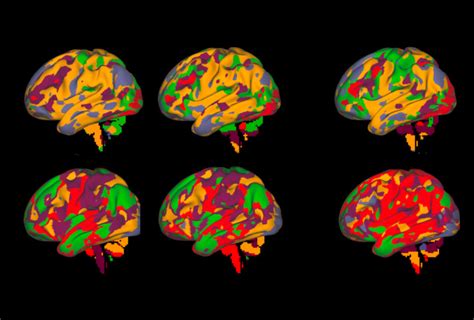So, imagine a world where people are not just disagreeing but living in entirely different realities. Sounds like a sci-fi film, right? Well, according to Leor Zmigrod, a brilliant mind in neuroscience and political psychology from Cambridge University, this might be more real than we think.
In her groundbreaking book titled “The Ideological Brain: The Radical Science of Flexible Thinking,” Dr. Zmigrod delves into the fascinating realm of how our brains are wired to embrace or reject ideologies. It’s not just about what you believe; it’s about how your brain is configured to process those beliefs.
“Ideologies numb our direct experience of the world,”
says Dr. Zmigrod, hitting us with that thought-provoking truth bomb. She believes that ideologies act as mental blinders, limiting our ability to see beyond predefined narratives and stifling our capacity for critical thinking.
But hold on; let’s take a step back and ponder: What exactly is ideology? According to Dr. Zmigrod, it’s more than just a set of beliefs; it’s a comprehensive narrative dictating how we perceive the world and prescribing strict rules on how we should think and behave. Deviation from these rules is often frowned upon by ideological doctrines.
Now, here comes the juicy part – why do some people find rigid thinking so appealing? Well, ideologies offer a sense of structure and belonging in an otherwise chaotic world. They provide comfort by simplifying complex issues and offering ready-made solutions for individuals seeking clarity amidst uncertainty.
“Exploring the world is really cognitively expensive,
and just exploiting known patterns and rules can seem to be the most efficient strategy,” explains Dr. Zmigrod when discussing why many gravitate towards rigid ideologies. In essence, sticking to familiar paradigms feels safer than challenging them in an ever-evolving reality.
However, don’t let the allure of certainty fool you – ideologies come at a cost.
“Ideologies numb our direct experience of the world.
They narrow our capacity to adapt…to understand evidence,” she warns sternly against falling prey to the seductive trap of rigid belief systems.
In her research detailed within the pages of her book, Dr. Zmigrod sheds light on how ideological thinkers may not always be reliable narrators of reality. Their entrenched beliefs can skew their perception of facts, blurring the lines between objective truth and subjective interpretation.
As we navigate through today’s tumultuous socio-political landscape characterized by deep-rooted ideological divides, Dr. Zmigrod’s work serves as a guiding beacon urging us to question our cognitive biases and embrace intellectual flexibility for a more nuanced understanding of the world around us.
So next time you find yourself entangled in ideological dogma or witnessing its divisive effects on society, remember Dr. Zmigrod’s words echoing through the corridors of your mind: Embrace diversity of thought; resist the allure of intellectual rigidity; for therein lies true cognitive liberation.



Leave feedback about this